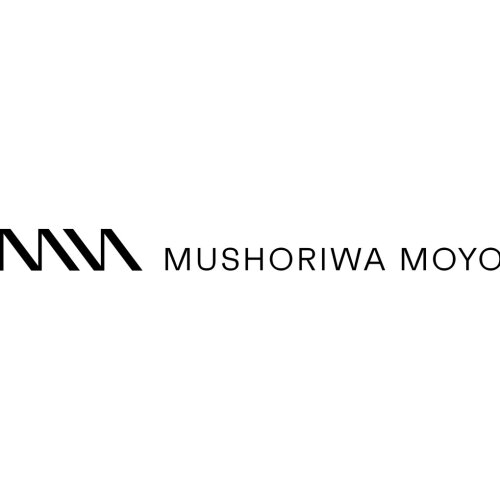Best Health insurance Lawyers in Zimbabwe
Share your needs with us, get contacted by law firms.
Free. Takes 2 min.
Or refine your search by selecting a city:
List of the best lawyers in Zimbabwe
About Health Insurance Law in Zimbabwe
Health insurance in Zimbabwe is an essential aspect of the healthcare system, aimed at providing citizens with financial protection against medical and healthcare expenses. Historically, both public and private sectors have played roles in offering health insurance services. Public health insurance is limited and mainly provides basic coverage, primarily serving civil servants and formal sector employees through the National Social Security Authority (NSSA). In contrast, private health insurance companies offer a variety of health cover products that address more comprehensive and varied healthcare needs. Health insurance law in Zimbabwe regulates these services, ensuring consumer protection, fair practices, and adherence to specified standards of care.
Why You May Need a Lawyer
There are numerous situations where individuals may require legal assistance concerning health insurance in Zimbabwe:
- Disputes Over Coverage: Misunderstandings and disagreements regarding the extent of coverage provided by a health insurance policy might arise, necessitating legal interpretation of policy clauses.
- Denied Claims: If a health insurance provider denies coverage for a medical procedure or treatment, legal help may be needed to challenge the decision.
- Contractual Issues: Complexities in policy agreements, including unclear or deceptive terms, often require legal scrutiny and negotiation.
- Fraudulent Practices: Legal intervention might be necessary to address misrepresentation or fraud, whether by the insurer or the policyholder.
- Regulatory Compliance: Ensuring that both the insurer and policyholder comply with local laws and regulations may require expert legal guidance.
Local Laws Overview
Health insurance in Zimbabwe is governed by a mix of statutory regulations and common law principles. Key aspects include:
- The Insurance Act: Governs the operations of insurance companies, stipulating requirements for licensing, conduct, and consumer protection.
- The Medical Services Act: Regulates the provision of medical services and includes provisions that affect the obligations of insurers regarding healthcare service delivery.
- Regulatory Bodies: The Insurance and Pensions Commission (IPEC) serves as the regulatory body overseeing insurance practices, including health insurance. They ensure adherence to statutory requirements and handle complaints.
- Consumer Rights Legislation: Laws exist to protect the rights and interests of consumers, including those engaging with health insurance providers.
Frequently Asked Questions
What is health insurance?
Health insurance is a contract between an insurer and a policyholder where the insurer provides financial coverage for medical expenses incurred by the insured.
Is health insurance mandatory in Zimbabwe?
As of now, health insurance is not mandatory in Zimbabwe, but it is recommended to cover unexpected medical costs.
What types of health insurance plans are available in Zimbabwe?
Both public and private health insurance options are available, offering varying levels of coverage. Some popular plans include comprehensive cover, major medical cover, and executive health plans.
How do I choose the right health insurance plan for me?
Consider factors such as your budget, health needs, family size, and the scope of coverage when selecting a health insurance plan.
Can a health insurance claim be denied?
Yes, claims can be denied if the treatment is not covered under your policy, or if there is a lapse in premium payments, among other reasons.
What should I do if my insurance claim is denied?
If your claim is denied, you should obtain a detailed explanation from your insurer. If unsatisfied, consult a lawyer to explore possible legal remedies.
Are pre-existing conditions covered in health insurance policies?
Coverage for pre-existing conditions might vary depending on the insurer and the terms of the policy. Some insurers may impose waiting periods or exclude certain conditions altogether.
How can I resolve a dispute with my health insurance provider?
Start by directly communicating with your insurer. If unresolved, consider seeking mediation, filing a complaint with regulatory bodies, or legal action as a last resort.
What legal protections do I have as a policyholder?
Policyholders are protected under consumer rights legislation and regulations enforced by IPEC to ensure fair treatment and recourse in disputes.
How can I lodge a complaint against my insurance provider?
Complaints can be lodged with the Insurance and Pensions Commission (IPEC), who will investigate and mediate the issue.
Additional Resources
- Insurance and Pensions Commission (IPEC): The regulatory body for insurance activities in Zimbabwe.
- Consumer Council of Zimbabwe: Provides support and advice to consumers facing issues with insurance services.
- National Social Security Authority (NSSA): Offers information on public health insurance benefits available to eligible citizens.
- Legal Aid Organizations: Provide assistance and representation for those who cannot afford private legal services.
Next Steps
If you require legal assistance regarding health insurance issues in Zimbabwe, consider the following steps:
- Gather all relevant documents including your insurance policy, correspondence related to your issue, and any evidence of wrongdoing or disputes.
- Contact a qualified lawyer who specializes in insurance law for a consultation to discuss your situation.
- Consider reaching out to regulatory bodies like IPEC for guidance or to file a formal complaint if necessary.
- If cost is a concern, explore legal aid options available through government programs or non-profit organizations.
Lawzana helps you find the best lawyers and law firms in Zimbabwe through a curated and pre-screened list of qualified legal professionals. Our platform offers rankings and detailed profiles of attorneys and law firms, allowing you to compare based on practice areas, including Health insurance, experience, and client feedback.
Each profile includes a description of the firm's areas of practice, client reviews, team members and partners, year of establishment, spoken languages, office locations, contact information, social media presence, and any published articles or resources. Most firms on our platform speak English and are experienced in both local and international legal matters.
Get a quote from top-rated law firms in Zimbabwe — quickly, securely, and without unnecessary hassle.
Disclaimer:
The information provided on this page is for general informational purposes only and does not constitute legal advice. While we strive to ensure the accuracy and relevance of the content, legal information may change over time, and interpretations of the law can vary. You should always consult with a qualified legal professional for advice specific to your situation.
We disclaim all liability for actions taken or not taken based on the content of this page. If you believe any information is incorrect or outdated, please contact us, and we will review and update it where appropriate.
Browse health insurance law firms by city in Zimbabwe
Refine your search by selecting a city.











